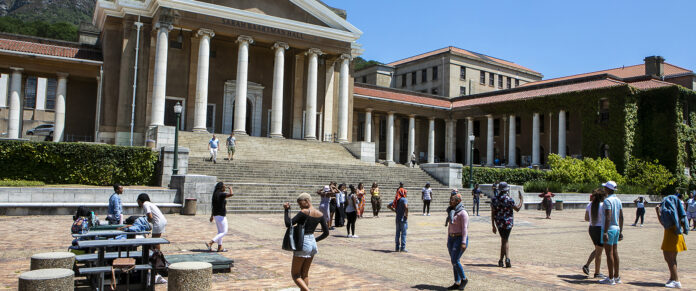Higher Education Minister Buti Manamela has launched a fresh probe into allegations that University of Cape Town (UCT) offered a student a degree to buy her silence after being raped by a professor.
The complainant, who is known to Sunday World but cannot be named for legal reasons, was later gagged with a court order obtained at the Western High Court by UCT after several investigations into the allegations ‘found no evidence’ to her claims.
Manamela told Sunday World this week that his office would seek a formal report from the institution on how the matter was concluded and whether compliance with sexual and gender-based violence policy has since improved.
An anonymous source who is privy to the case, alleged that the complainant was raped about 2020 by one of the university’s academics. At the time of the alleged rape incident, the complainant was a post-graduate student and an employee of the Western Cape Health Department. Afterwards, she allegedly opened a case against the culprit but was later coerced into dropping it in exchange for a free degree.
The person added that the offer was made during a meeting in May, when the complainant, a foreign national, was asked to withdraw the rape case and leave the country in return for a pass mark for her exams.
It is alleged legal representatives were present in that meeting, making the institution’s involvement explicit. She declined the offer, said the person. Sunday World understands that the alleged perpetrator was later promoted.
Manamela said on Friday that the allegations which the complainant first raised with him while still the deputy minister – were “deeply serious and speak to the broader challenge of sexual and gender-based violence (SGBV) in our higher education institutions.”
“The department takes allegations of universities silencing GBV survivors extremely seriously. We are reviewing measures to ensure gag orders and other legal instruments are not misused to intimidate or silence victims.
Our aim is to ensure that institutional processes protect survivors, uphold justice, and comply with the Constitution and relevant laws,” Manamela said.
He added, “While I cannot comment on the specifics of the alleged criminal matter, I can confirm that as a minister, I am directing the department to urgently obtain a full report from the UCT Council on the handling of this case, including the university’s compliance with the national SGBV policy framework. Should evidence emerge of non-compliance, abuse of process, or misuse of public funds, the Department will take appropriate regulatory action.”
He confirmed that while serving as Deputy Minister, his office engaged directly with the complainant more than two years ago after she reached out via calls and emails.
“During that engagement, she expressed significant distress, including threats of self-harm.
She was immediately referred to Higher Health, the statutory body responsible for health and wellness in the post-school sector, so that she could access psychosocial and medical support.”
At the time, said Manamela, his office also explained that the deputy minister did not have investigative or prosecutorial powers. “Allegations of rape, attempted murder, or other criminal conduct fall within the mandate of the South African Police Service (SAPS) and the National Prosecuting Authority (NPA). Allegations of maladministration or cover-up within a university can be pursued through the University Council, the Department of Higher Education and Training, the Public Protector, and, where relevant, the courts.”
He said the complainant was advised to approach the Independent Police Investigative Directorate (IPID) if she believed her case had been mishandled by SAPS and the Public Protector if she felt there was maladministration by UCT, the Western Cape Department of Health, or any public entity.
UCT spokesperson Elijah Moholola said on Friday that the matter had been thoroughly investigated and resolved.
“This matter was the subject of a high court ruling in November 2024 as well as three independent investigation processes prior to that,” Moholola said.
He emphasised that investigations conducted by SAPS, the Western Cape Government (WCG) Health and Wellness, and the Presidency found “no substance to the claims”. UCT also cooperated fully with the WCG during these investigations.
The Western Cape High Court ruling interdicted the respondent from disseminating or publishing defamatory statements about UCT or its employees on social media platforms, including X (formerly Twitter), or other media outlets. Moholola reiterated, “UCT regards this matter as closed.”




